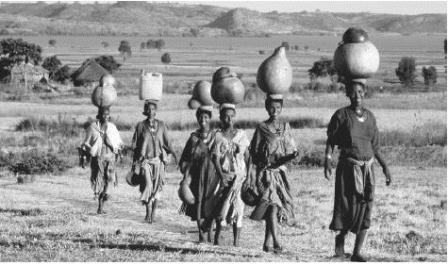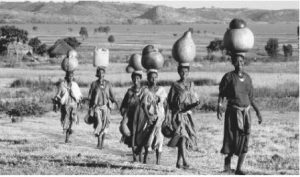Ethiopia Growing Fast, But Facing Massive Brain Drain

At the World Economic Forum on Africa which took place in South Africa in May, a forum communique stated:
“To build on its achievements, Africa’s leaders need to strengthen the continent’s competitiveness, foster inclusive growth, and build resilience in a volatile global environment. Accelerating economic diversification, boosting strategic infrastructure, and unlocking talent are critical success factors in this new leadership context”
I like to look at Ethiopian talent which is disappearing and moving to other parts of the world. This practice is called brain drain.
The first time I heard the concept of brain drain was during my sophomore year in college. My brother had sent me an article on Facebook about the brain drain in the world. The article stated that Ethiopia was experiencing one of the worst brain drains of any country in the world, ranking number one, followed by Nigeria, Kenya, and South Africa respectively.
Ethiopia is currently considered one of the fastest-growing countries in the world. But it is also ranked number one in brain drain of any country in the world. Many talented Ethiopians are fleeing to other parts of the world, especially to the United States of America. They Are traveling abroad to seek greener pastures, they want more bang for the buck, as some would say, better education, a better way of life.
So how does that work? How is it possible that we are growing fast while losing our educated power faster?
A friend of mine asked me what sustainable African development meant to me. My answer is this.
I grew up in an environment full of censers, the smell of incense, street markets, tea, the smell of freshly roasted coffee, community gatherings, and celebrations. It is a community where braids told our history and outfits echo our African self-expression. I grew up in a community with prayer calls from mosques and churches, with more languages spoken than one could understand, and where football or soccer was played on every street corner of Addis Ababa.
I believe in sustainable African development in an economic growth system that can support this lifestyle. A truly African economy is one that is enduring and nurtures people’s culture, traditions, and environment.
I know a lot of educated Ethiopians who would ask the question: “Who told me they do not want to return to Ethiopia after spending most of their adult life out of the country? Or they would say, “What do I have to go back for?”
This attitude makes me wonder who is to blame. Perhaps a few rhetorical questions can get us to think about these issues and guide our way to some answers.
Is it the government’s responsibility to nurture a nation’s educated population? Is it our responsibility as educated people in the Diaspora to work with educated people in our constituent community to come up with a solution?
Are our top-down-vertical leadership structures sustainable? Do we give ourselves enough space to explore horizontal leadership? Why are we not looking for a president or a chair who would help solve our development problems?
Is it time for us to explore grassroots organizations, social entrepreneurs, and the private sector for solutions to our problems? Can we invest in comparative and comprehensive education so we do not make the same mistakes as other communities and produce leaders of different forms? Can we invest in education that nurtures our essence and authenticity as Africans, so we won’t lose it in the name of development?
Can an economy be sustained without its brainpower? Is it really growth if we are contracting foreign companies to build our schools, hospitals, homes, roads, and every other form of infrastructure that is essential for our development? Is it really growth if we are forgetting to teach our youth pride in their sense of being, history, culture, and tradition?
Is Ethiopia’s growth really growth for a country that prides itself as the only country in Africa that was never colonized, yet raises citizens who do not speak any Ethiopian languages, but do speak fluent English and French?
Can we be a country that has material poverty, but also trying to exchange it with our social wealth?

